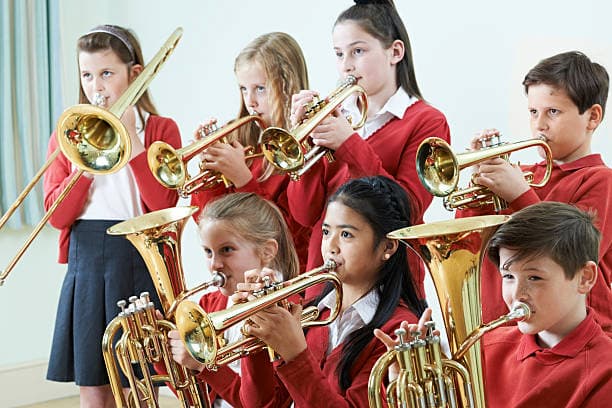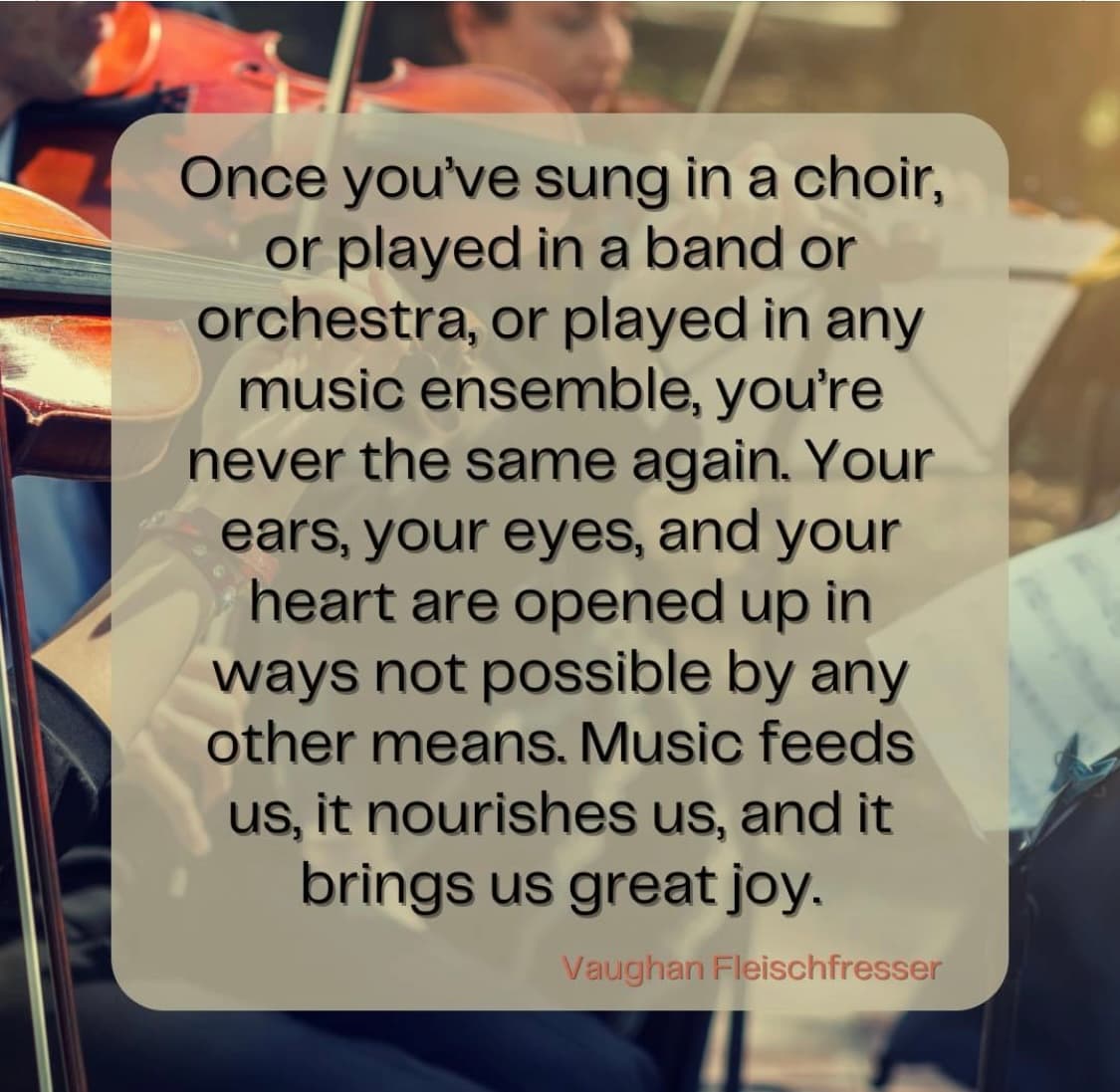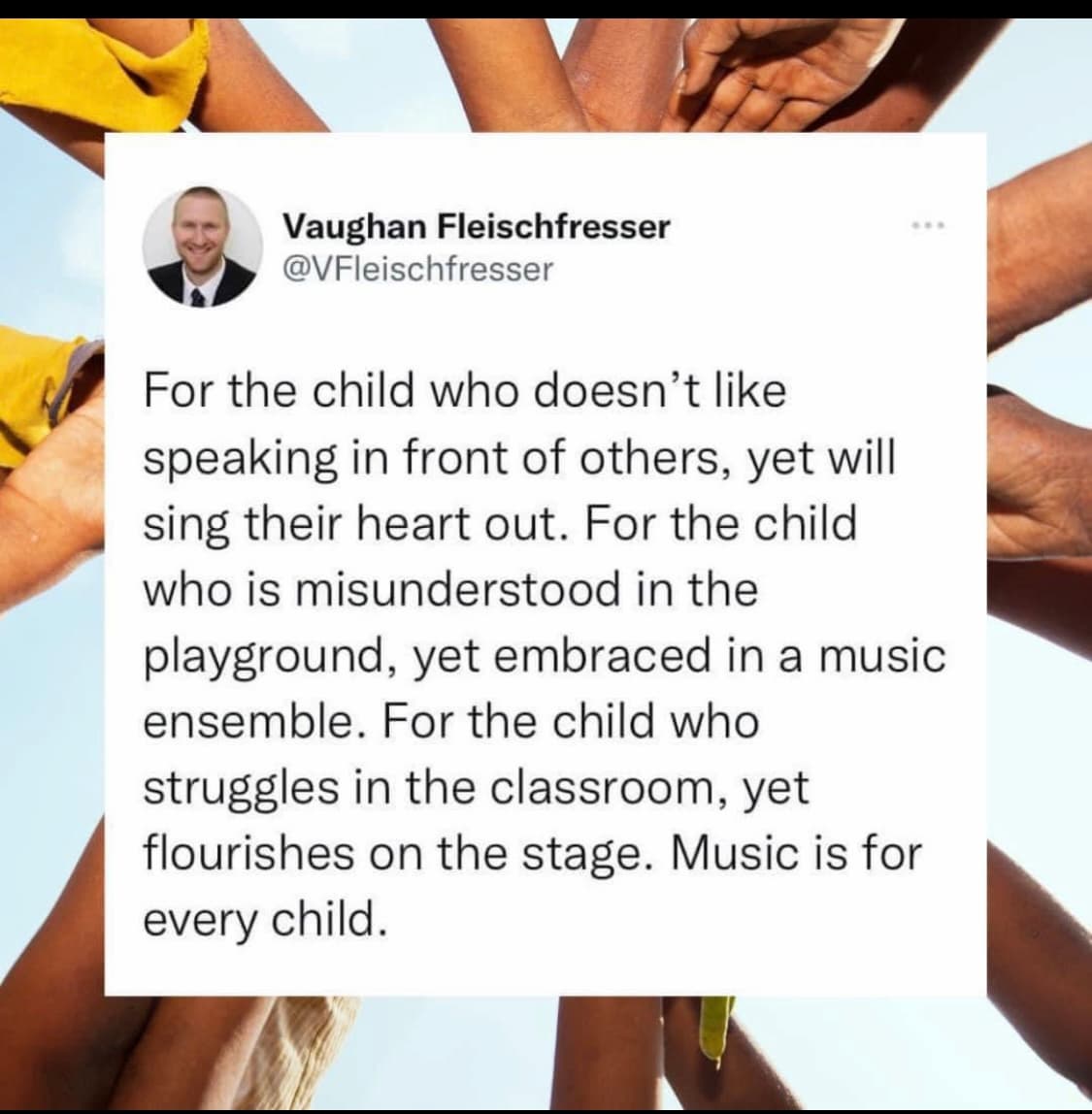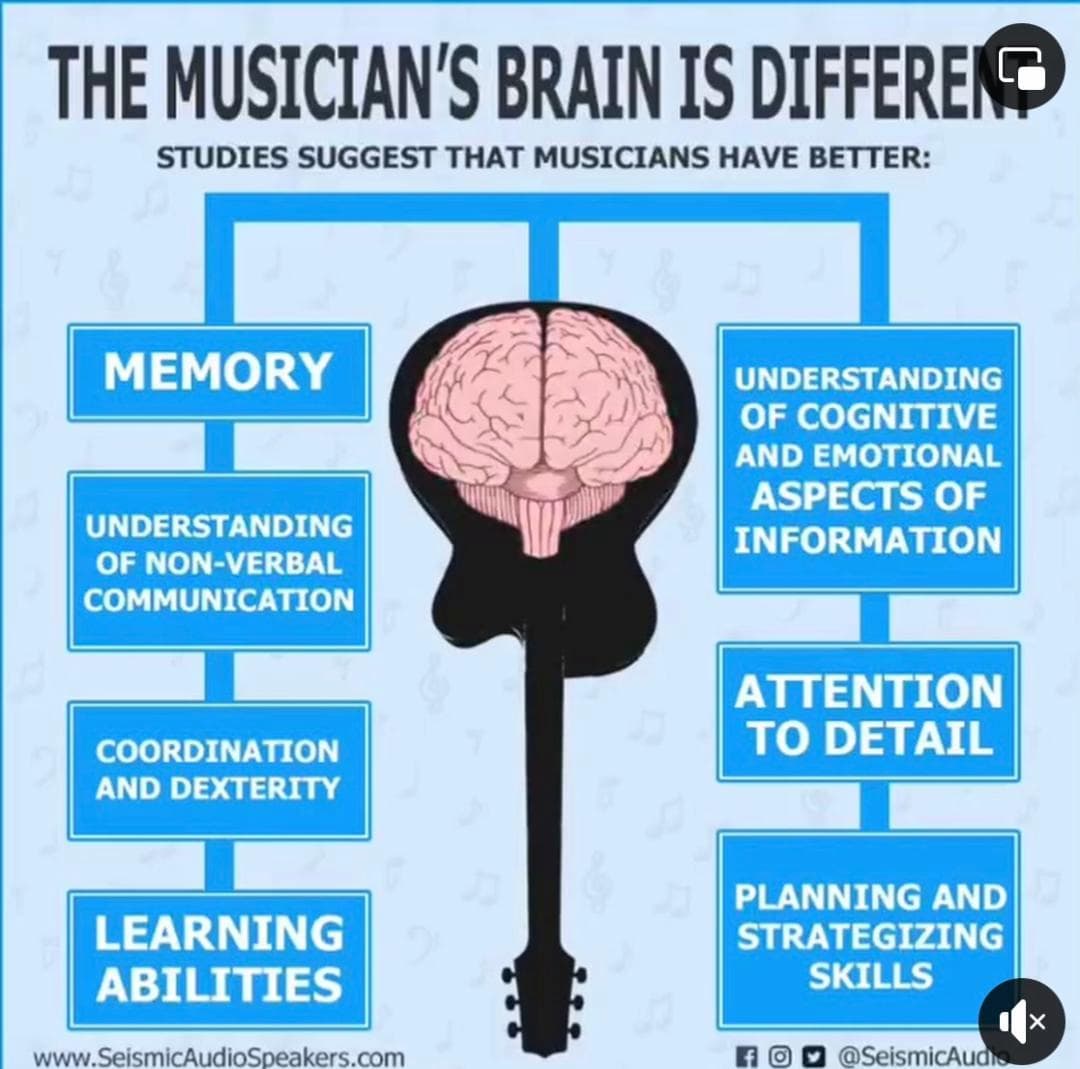by Janet Horvath, Interlude

The music room is a haven, a place of friendship and belonging. Music teachers teach us much more than simply how to play an instrument. They instill the importance of hard work, to believe in oneself, and the joys of working together for a common goal. I can remember how often my high school classmates and friends would congregate in the music room before school and after school, during lunch period, and even when they were supposed to be somewhere else. It was the one class we truly looked forward to. Making music made us want to go to school. That was my experience in junior high and high school—the music classroom was my home base and refuge. The concerts and performances sometimes of hit musicals such as Bye Bye Birdie, which we did in my day, or Amahl and The Night Visitors—a Holiday favorite—and musicals such as Gypsy, My Fair Lady, and Mamma Mia are occasions for the teamwork, collaboration, preparation, and cooperation for weeks or months.
The results are often astonishing, achieving levels that impress not only parents and teachers in attendance, but also the kids themselves who see what interaction and working consistently can achieve. And look what can happen! A high school student composer Lang Chen, has the opportunity to collaborate with his bandmates.
Music making is transformative encouraging unity and stirring self-confidence. For those young people who do not fit it otherwise, who don’t excel in sports, who might be shy, or who speak another language, or who have learning challenges, it is inclusive, affirming, and lifesaving.


Later in life, the benefits of being able to play continue. Let us set aside the huge contribution of the music industry to the economy of a country for a moment. Ensemble playing teaches us the power of shared experience, shared feelings, and shared goals. The unification of many artists working together to produce beauty ultimately is what makes an orchestra, choir, or band potentially the greatest musical instrument. And what other activity is there that brings people together of all ages, of different communities and backgrounds, of varied cultures and abilities, no matter their station in life, who come together oftentimes weekly to connect, and to make music. For many, it’s the highlight of their week. The inclusivity makes an impact. For example, listen to this inspiring collaboration—amateurs and professionals here work together in this performance of Amahl and the Night Visitors presented by On Site Opera at the Holy Apostles Soup Kitchen sung by an amateur chorus who have been impacted by homelessness.
Studies have shown that playing a musical instrument is a workout for both sides of the brain. It increases brain matter since it involves reading (the visual), listening (the auditory), memory, and emotion; it improves dexterity, fine motor skills, and, in fact, every major part of the nervous system. Studying note-reading has been compared to the benefits of learning a different language (because it is!)

And it’s never too late. Results from a study of individuals who started to play piano between the ages of 60 and 85 noted that “after six months, those who had received piano lessons showed more robust gains in memory, verbal fluency, the speed at which they processed information, planning ability, and other cognitive functions as compared with those who had not received lessons.” (Penn Medicine News, by Sally Sapeega 2017.)
Music ensembles in schools, in youth and community orchestras and bands, in church and synagogue choirs, and in chamber music reading sessions help us connect. There are several organizations that do just that. The Chamber Music Connection in Ohio, Debra Price Barrett artistic director, a long-time organization for youth musicians, has had astounding success and an enviable history and mission:
The mission of Chamber Music Connection (CMC) is to teach and perform chamber music at the highest level, benefiting students of all ages, backgrounds, and abilities. Our vision is to use chamber music to promote personal and musical growth and development while building our sense of community and interconnectedness in the lives of our students. By fostering both leadership and collaboration, CMC strives to build skills not only for music but for life.
Here is a concert featuring cellist Jaden Tugaoen in the Elgar Cello Concerto accompanied by some of their young musicians. Their enthusiasm during the ovation says it all!
Another program is the award-winning Young Chamber Musicians (YCM) in San Francisco with its 16-year history, which offers advanced chamber music instruction and exciting performance opportunities to string players and pianists ages 14-19.
No comments:
Post a Comment